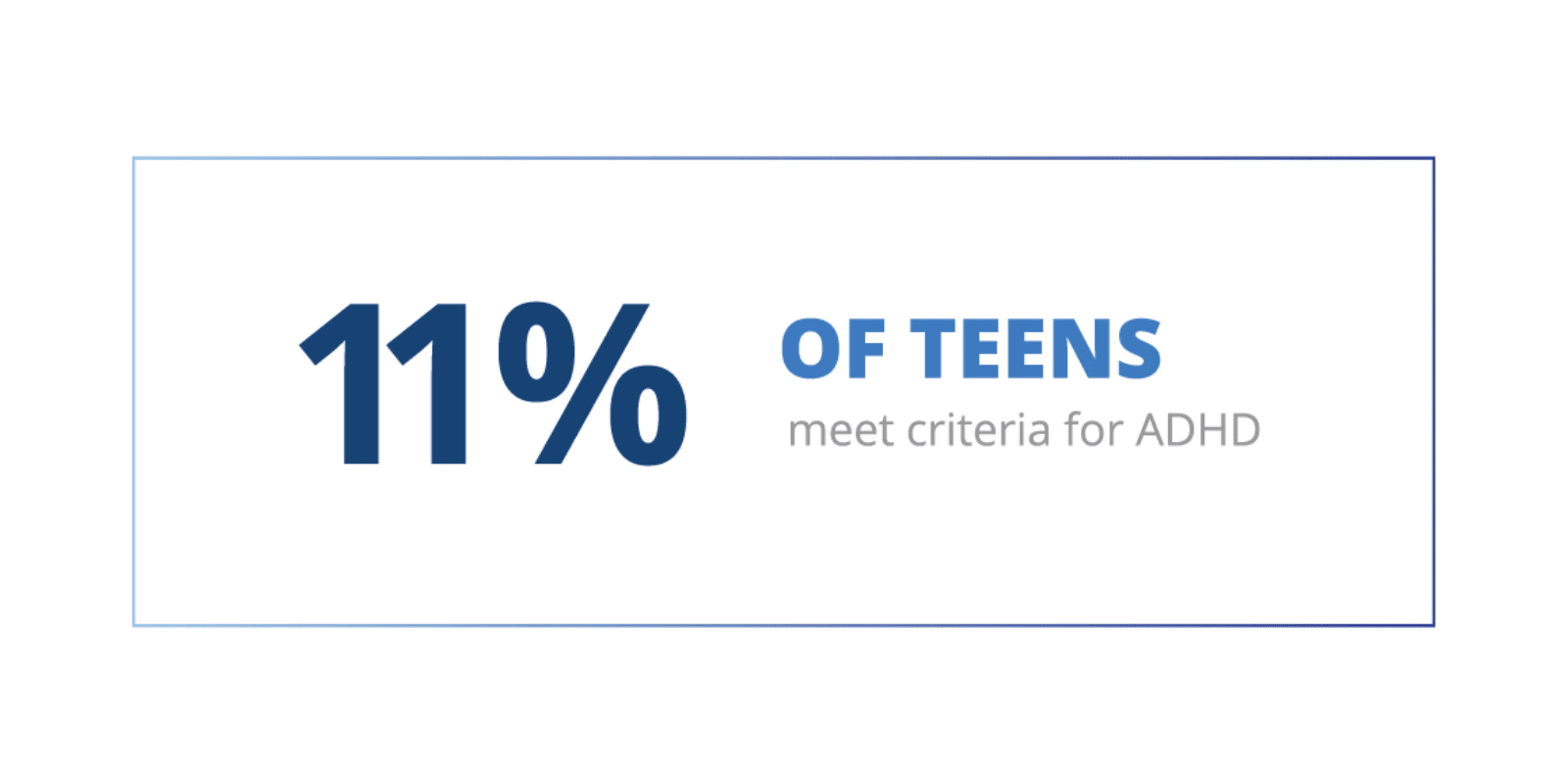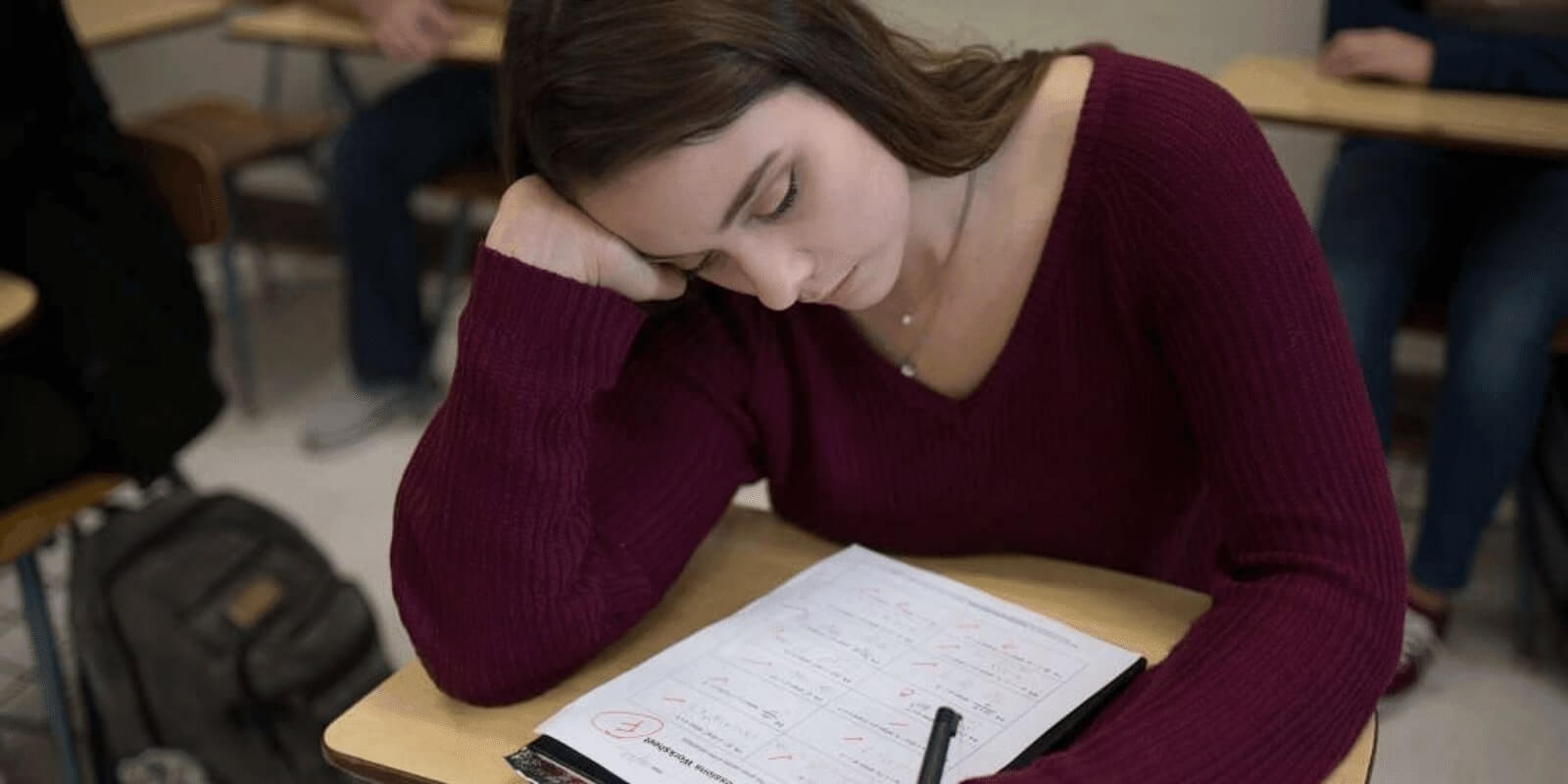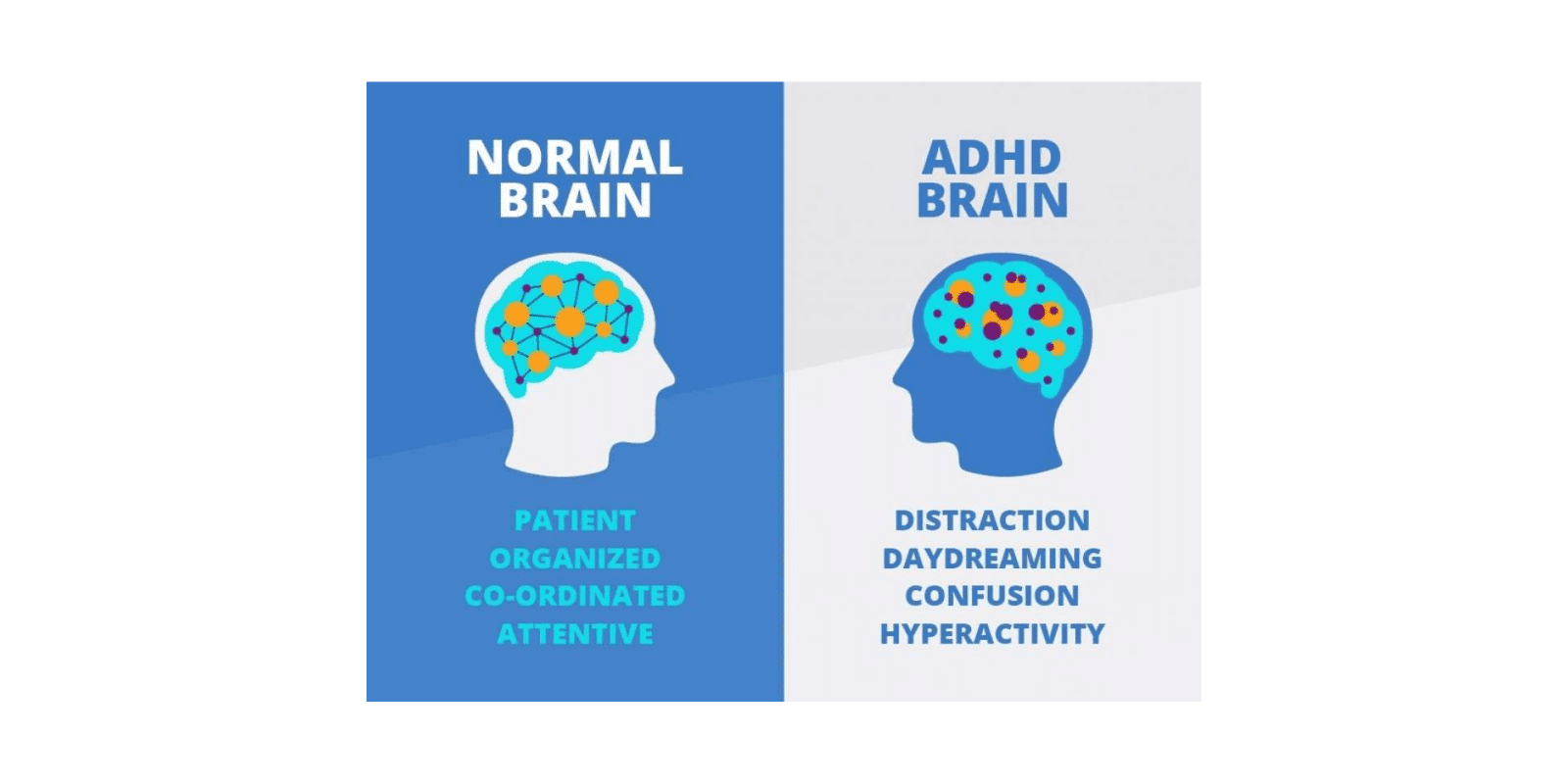Attention Deficit Hyperactivity Disorder (ADHD) in Teens


As a parent or caregiver of a teen, you want the best for them. You have high hopes for them – that they will do well in school, that they’ll succeed in their areas of interest and that they’ll enjoy healthy friendships. But sometimes those things don’t happen.
Maybe you’re frustrated because your teen constantly struggles with schoolwork. Maybe they seem unable to stay organized. Maybe they have trouble focusing on tasks or remembering important details. Maybe you can see that they struggle to interact well with their peers. If you see symptoms like these in your kid, they might be struggling with attention deficit hyperactivity disorder, or ADHD.
Many people with ADHD learn to manage it successfully and live healthy, productive and fulfilling lives. If your teen has ADHD, we want to help you understand it, and help them be their best selves.
ADHD is a neurological disorder associated with inattention, impulsivity, and hyperactivity.
Some people think that only small children are diagnosed with ADHD, but that’s a common misconception. ADHD is also diagnosed in teens, and even adults. The most common mental condition, it affects 11 percent of children, with a third of them continuing to suffer the symptoms into adulthood.
What causes ADHD? Though researchers have tried to answer this question, they still don’t know for certain. What they do know, however, that ADHD is highly complex. Many researchers believe the disorder has a genetic component, because it’s more common in people who have one or more family members with ADHD.
Attention deficit hyperactivity disorder also seems to have an environmental component. The likelihood of getting ADHD is increased by factors like premature birth, low birth weight, exposure to pesticides or lead in early childhood and brain injury. But again, there is no single cause.
You may be wondering what to look for in your kid to be able to tell if they have ADHD. But because it’s such a complex disorder, there is no single test or criteria; it must be diagnosed by a licensed psychologist, psychiatrist or neurologist. The American Psychiatric Association has identified three types of ADHD:
Most adolescents can be inattentive at times, and most teens can act as if they’re hyper and impulsive. But if your child persistently displays several of the following symptoms, you should consider treatment.

Teenagers with inattentive type ADHD typically demonstrate most of the following behavior patterns:
Those with hyperactive/ impulsive type ADHD usually demonstrate most of the following behavior patterns:
Combined type is the most common form of ADHD. People with this form of ADHD demonstrate symptoms of both hyperactive-impulsive and inattentive types.
Parenting is a difficult job in any case, but parenting a child with ADHD presents its own set of challenges. Here are some tips to help you be the best parent you can be:
Accept your child for who they are.
Try to see the positive in your teen, just the way they are – including the special qualities that come along with ADHD, like their increased energy and creativity. When it’s clear that your view of them is accepting and unconditionally loving, they’ll in turn feel the same way about themselves.
Don’t punish them for behavior they can’t help.
Many teens with ADHD exhibit behaviors that can be frustrating – make an effort to discern which are driven by ADHD and which are purely motivated by defiance. Punishing behavior outside their control only adds to their shame – try to use patient reminders instead.
Don’t personalize their ADHD-related problems.
Target the ADHD, not your child, and learn to distinguish between the two. Focus on solutions and involve your child in reaching them.
Acknowledge and praise good behavior.
When you focus on positive behaviors, you reinforce them. Make sure to include plenty of joy, laughter and fun in your family life – you’ll have more opportunities to connect over positive experiences and everyone will be much happier as a result!
If your child is showing symptoms of ADHD, it’s important to get them the treatment they need as early as possible. Without treatment, people with ADHD often develop the following problems:
Although these problems frequently develop if ADHD is left untreated, people who are diagnosed and treated early can and do live normal, healthy lives.
One unfortunate outcome of ADHD is that girls are under diagnosed, and therefore, less girls receive the treatment they need to manage their disorder and mitigate its consequences. This is due to a few factors. Most girls with ADHD have the inattentive type.
Symptoms of this type of ADHD may be less obvious than those of the hyperactive type, and include short attention span, poor attention to detail and difficulty finishing tasks. They may create less trouble for parents and teachers, and therefore not demonstrate a noticeable need for attention.
Girls with ADHD tend to demonstrate hyperactivity in less obvious ways than boys. Says Patricia Quinn, M.D., director of the National Center for Gender Issues and ADHD in Washington, D.C., “In a classroom setting, a boy might continually blurt out answers or repeatedly tap his foot, whereas a girl might demonstrate hyperactivity by talking incessantly.”
As an ADHD diagnosis is the first step toward treatment and an improved quality of life, this underdiagnosis means many girls aren’t getting the help they need.
This also puts them at increased risk for other disorders – research shows a strong link between ADHD and other mental health conditions. Adolescents with ADHD are also more likely to abuse substances, and to struggle with addiction as adults.

Young people with ADHD are at increased risk for addiction in a number of ways:

This is for a few reasons. Firstly, the telltale characteristics of ADHD – impulsivity, hyperactivity and inattention – are also indicative traits of adolescents who tend to abuse substances. This is also true for behavioral issues like school truancy, lying and stealing. Whether stimulant ADHD medications ultimately help or exacerbate behavior remains a topic of debate among medical professionals.
As a parent of a teen with ADHD, it’s OK to be concerned. Naturally, you want them to do well in school and other activities, and you wanted them to develop good social skills and healthy friendships. But that’s not happening, and life has gotten tough for both you and your kid. You might even be feeling that your situation is nearly hopeless, and you’re wondering if it’s even possible to see them turn around. Can things get better for your family?
The answer is yes. Many young people with ADHD who have gotten treatment and are doing well in school, succeeding in their activities, and enjoying healthy friendships with peers. Keep in mind that your child will benefit as you stay positive and encouraging. Once they know your goal is to help them relax and enjoy life again, you’ll have the trust you need to help them succeed.
If you think your teen may need treatment, talk to us. Sandstone Care offers teen residential treatment and a full continuum of care. Our open-minded staff accepts teens as they are. We’re available seven days a week to help you with any questions you have, no matter what your situation is – give us a call at 888-850-1890.
